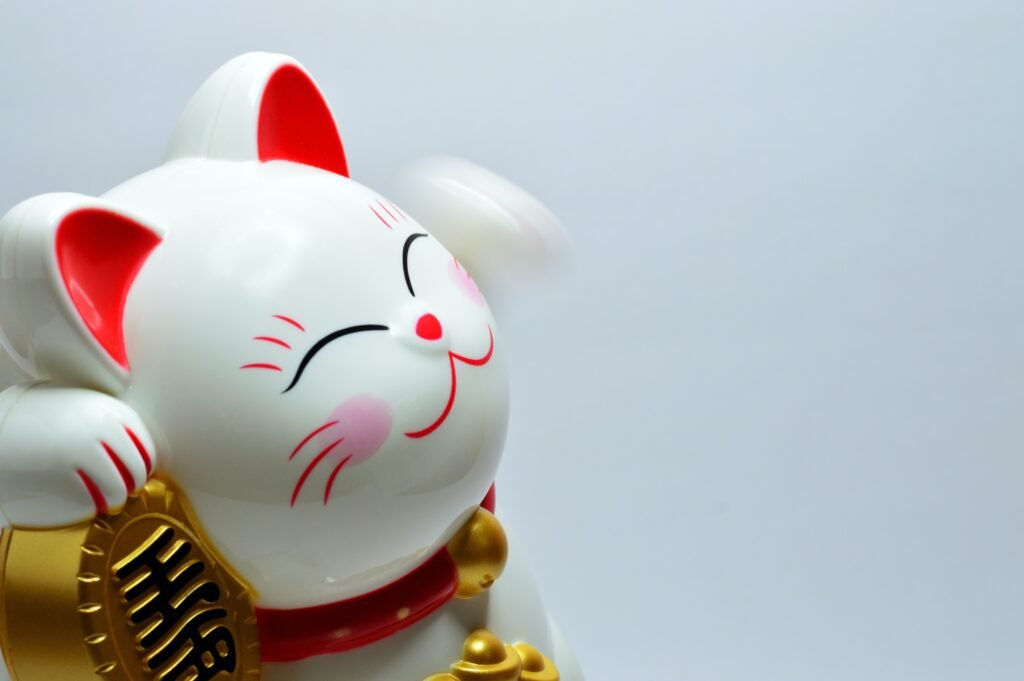The God of Luck, also known as the God of Fortune or God of Wealth, holds a significant place in various cultures and belief systems around the world. This revered deity symbolizes prosperity, abundance, and good fortune. In this article, we explore the fascinating world of the God of Luck, shedding light on its cultural significance, symbols, and the profound impact it has on people’s lives.
- The Universal Appeal of the God of Luck: The concept of the God of Luck transcends cultural boundaries, with variations found in Chinese, Japanese, Hindu, and many other traditions. While the specific characteristics and names may differ, the underlying idea of a deity bestowing blessings and prosperity remains constant.
- Symbols and Depictions: The God of Luck is often depicted in various forms, such as a benevolent deity adorned in luxurious attire, carrying auspicious objects like a golden ingot, a wealth vase, or a treasure ship. These symbols represent abundance, good fortune, and the fulfillment of material desires.
- Festivals and Rituals: In many cultures, vibrant festivals and rituals are dedicated to the God of Luck. These celebrations involve prayers, offerings, and the seeking of blessings for wealth, success, and prosperity. The festivities are accompanied by colorful decorations, music, dance, and communal gatherings.
- Role in Business and Finance: The God of Luck holds a special place in the world of business and finance. Many individuals and enterprises seek the deity’s blessings to attract wealth, success, and financial growth. Statues or images of the God of Luck are often displayed in offices, shops, and homes, serving as a reminder of the aspirations for prosperity.
- Personal Luck and Fortune: Believers in the God of Luck often turn to prayers and rituals to enhance their personal fortune. They seek blessings for favorable opportunities, success in endeavors, and protection against misfortune. The God of Luck is considered a guardian deity, watching over individuals and ensuring their well-being.
- Cultivating Luck through Virtuous Actions: In some belief systems, it is believed that cultivating luck goes beyond mere prayers and rituals. Leading a virtuous life, practicing generosity, and displaying kindness towards others are considered essential for attracting the blessings of the God of Luck. This notion emphasizes the correlation between positive actions and the manifestation of good fortune.
- Temples and Sacred Sites: Temples dedicated to the God of Luck are places of reverence and pilgrimage. These sacred sites attract devotees seeking blessings, guidance, and a deeper connection with the deity. Worshippers offer prayers, burn incense, and make offerings to express their devotion and seek divine intervention.
- Cultural Impact: The God of Luck has a profound cultural impact, influencing art, literature, and entertainment. The deity often appears in folk tales, traditional performances, and contemporary media, further solidifying its place in popular culture and fostering a sense of hope and optimism.
- Feng Shui and Luck Enhancement: In the realm of Feng Shui, the God of Luck plays a vital role in attracting positive energies and harmonizing the environment. Feng Shui practitioners utilize specific symbols, colors, and arrangements to invite the blessings of the deity into homes and businesses, creating an auspicious atmosphere.
- Beyond Material Wealth: While the God of Luck is closely associated with material wealth and abundance, its significance extends beyond monetary gains. It is believed that true fortune encompasses overall well-being, including spiritual fulfillment, harmonious relationships, and inner peace.

The God of Luck holds a special place in the hearts and minds of believers worldwide. As a symbol of prosperity, abundance, and good fortune, this deity transcends cultural boundaries and brings hope








